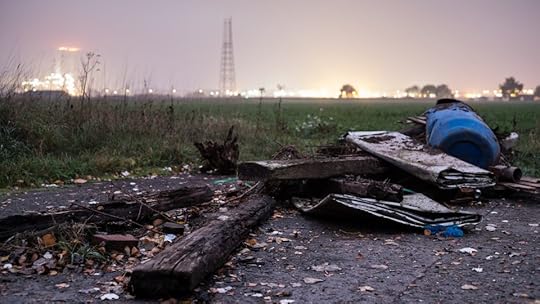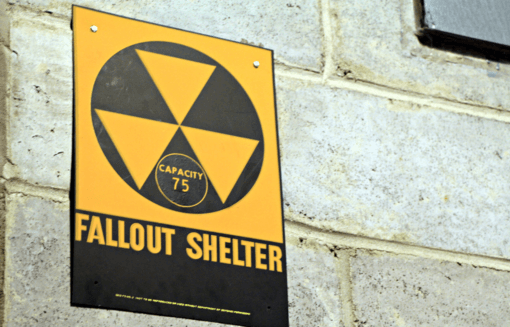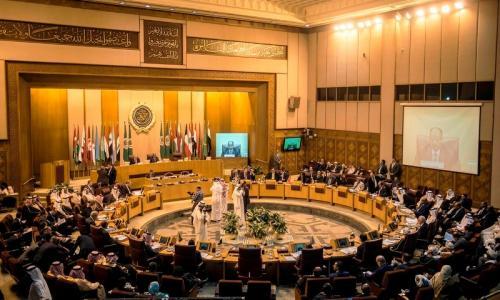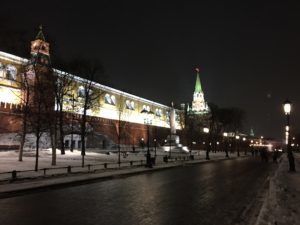Steve Bull's Blog, page 1252
November 20, 2017
Why We Love Farmers Markets
They are relatively free of federal regulation, and that’s what makes them great.
Almost every small and medium-sized town has what are called farmers markets. We love them. Some are seasonal. Some open only on weekends. People shops under tents and pay vendors cash. It’s all very charming, a nice alternative to superstores.
I just returned from one. I came home with a 4-pound Red Snapper, oversized Brussels Sprouts, beautiful red potatoes, fresh cheese made in the Mexican style, and tubs of spices – all for less than half what I would pay at a regular grocery store. Plus I enjoyed looking at foods and ingredients from all over the world. So delightful, and so smart financially.
You simply would not believe the fish counter. You would think it was Greece or Turkey.
However, there were no tents and no farmers taking cash. This was a permanent building with regular hours of operation, unified checkout lines, and all the necessary technology to take credit cards. Enough of the products there were direct-to-consumer to justify the name ‘farmers market’ but it’s also a big business.You simply would not believe the fish counter. You would think it was Greece or Turkey. Fresh fish (yes, with heads and tails) were everywhere, on ice, all selling for half the price of the frozen stuff at the local store. It was dazzling. And the action! People from all over the world were grabbing tickets (you had to get in line), shouting demands, and piling their carts high.
It was just beautiful, if you like this sort of thing, which I do.
Better Groceries
Still, there is something puzzling about these markets. I have friends who visit or move from foreign countries. I’ve always been proud of American food markets, but these typically denounce what they find in stores. They think our food is terrible: processed, fake, tasteless, boring, expensive.
…click on the above link to read the rest of the article…
What, Me Worry? Humans Are Blind to Imminent Environmental Collapse
Accelerating biodiversity loss may turn out to be the sleeper issue of the century.
 Nature can’t compete with human activity overtaking the Earth. Photo by Ben Chapman, Creative Commons licensed.
Nature can’t compete with human activity overtaking the Earth. Photo by Ben Chapman, Creative Commons licensed.A curious thing about H. sapiens is that we are clever enough to document — in exquisite detail — various trends that portend the collapse of modern civilization, yet not nearly smart enough to extricate ourselves from our self-induced predicament.
This was underscored once again in October when scientists reported that flying insect populations in Germany have declined by an alarming 75 per cent in the past three decades accompanied, in the past dozen years, by a 15 per cent drop in bird populations. Trends are similar in other parts of Europe where data are available. Even in Canada, everything from casual windshield “surveys” to formal scientific assessments show a drop in insect numbers. Meanwhile, domestic populations of many insect-eating birds are in freefall. Ontario has lost half its whip-poor-wills in the past 20 years; across the nation, such species as nighthawks, swallows, martins and fly-catchers are down by up to 75 per cent; Greater Vancouver’s barn and bank swallows have plummeted by 98 per cent since 1970. Heard much about these things in the mainstream news?
Too bad. Biodiversity loss may turn out to be the sleeper issue of the century. It is caused by many individual but interacting factors — habitat loss, climate change, intensive pesticide use and various forms of industrial pollution, for example, suppress both insect and bird populations. But the overall driver is what an ecologist might call the “competitive displacement” of non-human life by the inexorable growth of the human enterprise.
On a finite planet where millions of species share the same space and depend on the same finite products of photosynthesis, the continuous expansion of one species necessarily drives the contraction and extinction of others.
…click on the above link to read the rest of the article…
Doomsday Scenarios: the UK’s Hair-Raising Admissions About the Prospect of Nuclear War and Accident

Photo by Toby Scott | CC BY 2.0
The British Ministry of Defence (MoD) has published several reports over the last few years. They discuss geopolitics and related themes, one of which is the likelihood of nuclear war or accident, including what it means for long-term survival.
Experts say that even a so-called limited exchange or accident would be catastrophic. For example, a recent paper in Earth’s Futurecalculates that the most optimistic scenario of a “small,” regional nuclear war between India and Pakistan would wipe out millions of people through famine and result in a nuclear winter. An exchange between the USA and Russia, for instance, could be even bigger and more devastating.
America’s ongoing “Asia Pivot” encourages China to build up its arsenals. Proxy wars in Syria and Ukraine with Russia and continuing tensions with North Korea also increase the risk of brinkmanship and miscalculation between those nuclear powers.
Britain’s Role
By training rebels in Syria and armed forces in Ukraine, the UK is particularly responsible for contributing to escalating tensions. Britain remains one of the USA’s closest allies and enjoys a “special relationship” with the US. It serves as a proxy for US Trident nuclear weapons systems. The UK’s Vanguard submarines host US-supplied Trident II D5 Intercontinental Ballistic Missiles. In 2016, a dummy ICBM was launched by the UK at a test target off the coast of Africa. It self-destructed and headed for Florida, according to news reports. The event took place a time when the British government voted to upgradeTrident in violation of Britain’s Non-Proliferation Treaty obligations and at a time when the newly-appointed Prime Minister, Theresa May (not yet elected), answered “Yes,” when asked by a member of Parliament if she would launch a nuclear missile and kill hundreds of thousands of civilians.
…click on the above link to read the rest of the article…
November 19, 2017
Agriculture and climate change: Is farming really a moveable feast?
There is a notion afoot that our agricultural production can simply migrate toward the poles in the face of climate change as areas in lower latitudes overheat and dry up. Few people contemplate what such a move would entail and whether it would actually be feasible.
One assumption behind this falsely reassuring idea is that soil quality is somehow roughly uniform across the planet. But, of course, this is completely false. Soil quality and composition vary widely, often within walking distance on the same farm. Farmers simply moving north (or south in the Southern Hemisphere) in response to climate change will not automatically encounter soil suitable for farming.
We must also consider that lands not previously farmed may very well be forested. Knocking down the trees and clearing the stumps might make such lands arable. But the loss of carbon storage that trees represent would only make climate change worse.
Quite often we think of rural areas as being undeveloped. But nothing could be further from the truth. Agricultural regions have complex networks involving roads, communications and electricity grids, irrigation systems, grain elevators, farm supply and machinery merchants, rail depots, agricultural research stations and field projects, government-sponsored agricultural assistance centers and the specialists attached to them, and entire towns which act as gathering places and service centers for those working in rural communities. All of this would have to be duplicated in newly opened agricultural lands for which pioneering settlers would have to be recruited. These pioneers would have to want to live in previously unsettled or sparsely settled areas with few amenities.
…click on the above link to read the rest of the article…
Arab League Holds Emergency Session: Iran And “Terrorist” Hezbollah Must Be Stopped
Saudi Arabia’s foreign minister, in opening remarks to the Arab League today, declared that the kingdom “will not hesitate to defend its national security to keep its people safe” while requesting that joint action be taken to stop Iranian “aggression” and attacks on Arab states.
Last weekend Saudi Arabia called an emergency session of the Arab League to address what it labeled “Iranian interference” after the bizarre series of events related to MBS’ aggressive internal purge, which included the detention of Lebanese ex-PM Hariri, left the kingdom in an unprecedented state of strife and uncertainty. The destabilizing events were precipitated by a November 4 attack claimed by Shiite Huthi rebels in Yemen, which the Saudis called a “violation” committed by Iran, though Iran denied that it had anything to do with the rare ballistic missile launch out of Yemen.

Arab League meeting in Cairo on Sunday. Image source: AFP
Arab foreign ministers from member states met at League headquarters in Cairo on Sunday and in predictable fashion blasted Iran and Hezbollah for sowing instability and discord within Arab countries, citing Iranian “aggression” and expanding influence. The meeting is only the 12th such emergency summit to be held since the Arab League’s founding in 1945 – a fact which hints at Saudi Arabia’s increased desperation to confront Hezbollah while also shifting blame from its own self-made crisis at home.
The extraordinary session was also urged by close allies among the Gulf Cooperation Council (GCC) – UAE, Bahrain, and Kuwait – all of which also backed the Saudi diplomatic and economic war against Qatar which erupted early last summer. Among the many Saudi charges against Qatar is included supposed Iranian infiltration of the tiny oil-rich nation.
…click on the above link to read the rest of the article…
Protect Your Savings With Gold: ECB Propose End To Deposit Protection
– Protect Your Savings With Gold: ECB Propose End To Deposit Protection
– New ECB paper proposes ‘covered deposits’ should be replaced to allow for more flexibility
– Fear covered deposits may lead to a run on the banks
– Savers should be reminded that a bank’s word is never its bond and to reduce counterparty exposure
– Physical gold enable savers to stay out of banking system and reduce exposure to bail-ins
It is the ‘opinion of the European Central Bank’ that the deposit protection scheme is no longer necessary:
‘covered deposits and claims under investor compensation schemes should be replaced by limited discretionary exemptions to be granted by the competent authority in order to retain a degree of flexibility.’
To translate the legalese jargon of the ECB bureaucrats this could mean that the current €100,000 (£85,000) deposit level currently protected in the event of a bail-in may soon be no more.
But worry not fellow savers as the ECB is fully aware of the uproar this may cause so they have been kind enough to propose that:
“…during a transitional period, depositors should have access to an appropriate amount of their covered deposits to cover the cost of living within five working days of a request.”
So that’s a relief, you’ll only need to wait five days for some ‘competent authority’ to deem what is an ‘appropriate amount’ of your own money for you to have access to in order eat, pay bills and get to work.
The above has been taken from an ECB paper published on 8 November 2017 entitled ‘on revisions to the Union crisis management framework’.
It’s 58 pages long, the majority of which are proposed amendments to the Union crisis management framework and the current text of the Capital Requirements Directive (CRD).
…click on the above link to read the rest of the article…
November 18, 2017
Should we try to fix global warming with fake volcanic eruptions? TBD.
There could be unintended consequences.

The eruption of Mount Pinatubo in 1991 sent planet-cooling aerosols into the atmosphere. Photo by Arlan Naeg/AFP/Getty Images.
With heat-trapping carbon emissions on the rise again, researchers are looking for ways to turn down the thermostat while humanity gets itself under control. One potential solution? Try to copy volcanic eruptions. But in addition to adjusting the temperature, such practices could change the frequency of hurricanes, or the location of droughts.
When explosive volcanic eruptions occur — like the one at Mount Pinatubo in 1991 — they send small particles of ash and gas high into the atmosphere. These so-called aerosols block and reflect sunlight, providing a temporary cold compress to the Earth’s rising temperatures.
After years of watching volcanos go through the motions, some researchers are looking into whether they can use that same method to help cool down the planet — an idea known as solar geoengineering. But a set of studies published this month show just how complicated a proposition that might be.
“Sulfur dioxide is emitted by volcanic eruptions. It’s also relatively cheap and relatively common, so it’s the natural candidate for solar geoengineering,” says Anthony Jones, author of a recent Nature Communications study on the subject. “It’s basically copying a volcanic eruption, and then extending the injection of the aerosols into the atmosphere.”
Sulfur dioxide is a common occupant of the dramatic cloud that follows an Earthly eruption, and when it gets into the atmosphere it expands and reacts with other chemicals — including water — to form aerosol particles, which can reflect sunlight back into space and cool the Earth below.
…click on the above link to read the rest of the article…
Weekly Commentary: “Not Clear What That Means”
November 15 – Bloomberg (Nishant Kumar and Suzy Waite): “Hedge-fund manager David Einhorn said the problems that caused the global financial crisis a decade ago still haven’t been resolved. ‘Have we learned our lesson? It depends what the lesson was…’ Einhorn said he identified several issues at the time of the crisis, including the fact that institutions that could have gone under were deemed too big to fail. The scarcity of major credit-rating agencies was and remains a factor, Einhorn said, while problems in the derivatives market ‘could have been dealt with differently.’ And in the ‘so-called structured-credit market, risk was transferred, but not really being transferred, and not properly valued.’ ‘If you took all of the obvious problems from the financial crisis, we kind of solved none of them,’ Einhorn said… Instead, the world ‘went the bailout route.’ ‘We sweep as much under the rug as we can and move on as quickly as we can,’ he said.”
October 12 – ANSA: “European Central Bank President Mario Draghi defended quantitative easing at a conference with former Fed chief Ben Bernanke, saying the policy had helped create seven million jobs in four years. Bernanke chided the idea that QE distorted the markets, saying ‘It’s not clear what that means’.”
Once you provide a benefit it’s just very difficult to take it way. This sure seems to have become a bigger and more complex issue than it had been in the past. Taking away benefits is certainly front and center in contentious Washington with tax and healthcare reform. It is fundamental to the dilemma confronting central bankers these days.
…click on the above link to read the rest of the article…
Attack on RT Is Another Step Towards Sovietization of American Media

Attack on RT Is Another Step Towards Sovietization of American Media
This week the US Department of Justice Criminal Division forced the Russian-funded television network RT (formerly Russia Today) to register as a “foreign agent” under the Foreign Agents Registration Act (FARA). Failure to comply would have risked arrest of RT’s management and seizure of its assets. The move comes on the heels of Senators’ recent demands that terrified tech giants Twitter, Facebook, and Google act as ideological filters.
With no discernable defenders among America’s media establishment, RT rightly denounced the selective FARA mandate as an attack on media freedom – which it is. But more ominous is what the move against RT says about America’s rulers’ further intention to limit the sources of information available to its subjects.
As Daniel McAdams of the Ron Paul Institute writes:
“RT America is a news organization operating in the United States that is funded at least partly by a foreign government. So is the BBC. So is Deutsche Welle, France24, Al-Jazeera, and numerous other foreign media organizations. It is assumed that they all to a degree reflect the editorial interests of those who pay the bills.
“The same is true with other, non-state funded media outlets, of course. It’s up to us to factor these things in when we consume media. That’s what it means to be a free people.
“A core value in a free society is that our own government has zero power over what we read, what we watch, how we think, how we come to interpret current events, the conclusions we draw based on these inputs, and so on. These are private matters over which any government that is not tyrannical should have no sway.
…click on the above link to read the rest of the article…
America’s Righteous Russia-gate Censorship
Exclusive: Arriving behind the anti-Trump “resistance” and the Russia-gate “scandal” is a troubling readiness to silence dissent in the U.S., shutting down information that challenges Official Narratives, writes Robert Parry.
A stark difference between today’s Washington and when I was here as a young Associated Press correspondent in the late 1970s and the early 1980s is that then – even as the old Cold War was heating up around the election of Ronald Reagan – there were prominent mainstream journalists who looked askance at the excessive demonization of the Soviet Union and doubted wild claims about the dire threats to U.S. national security from Nicaragua and Grenada.

Tomb of the Unknown Soldier outside the Kremlin wall, Dec. 6, 2016. (Photo by Robert Parry)
Perhaps the Vietnam War was still fresh enough in people’s minds that senior editors and national reporters understood the dangers of mindless groupthink inside Official Washington, as well as the importance of healthy skepticism toward official pronouncements from the U.S. intelligence community.
Today, however, I cannot think of a single prominent figure in the mainstream news media who questions any claim – no matter how unlikely or absurd – that vilifies Russian President Vladimir Putin and his country. It is all Russia-bashing all the time.
And, behind this disturbing anti-Russian uniformity are increasing assaults against independent and dissident journalists and news outlets outside the mainstream. We’re not just entering a New Cold War and a New McCarthyism; we’re also getting a heavy dose of old-style Orwellianism.
Sometimes you see this in individual acts like HuffingtonPost taking down a well-reported story by journalist Joe Lauria because he dared to point out that Democratic money financed the two initial elements of what’s now known as Russia-gate: the forensic examination of computers at the Democratic National Committee and the opposition research on Donald Trump conducted by ex-British spy Christopher Steele.
…click on the above link to read the rest of the article…




